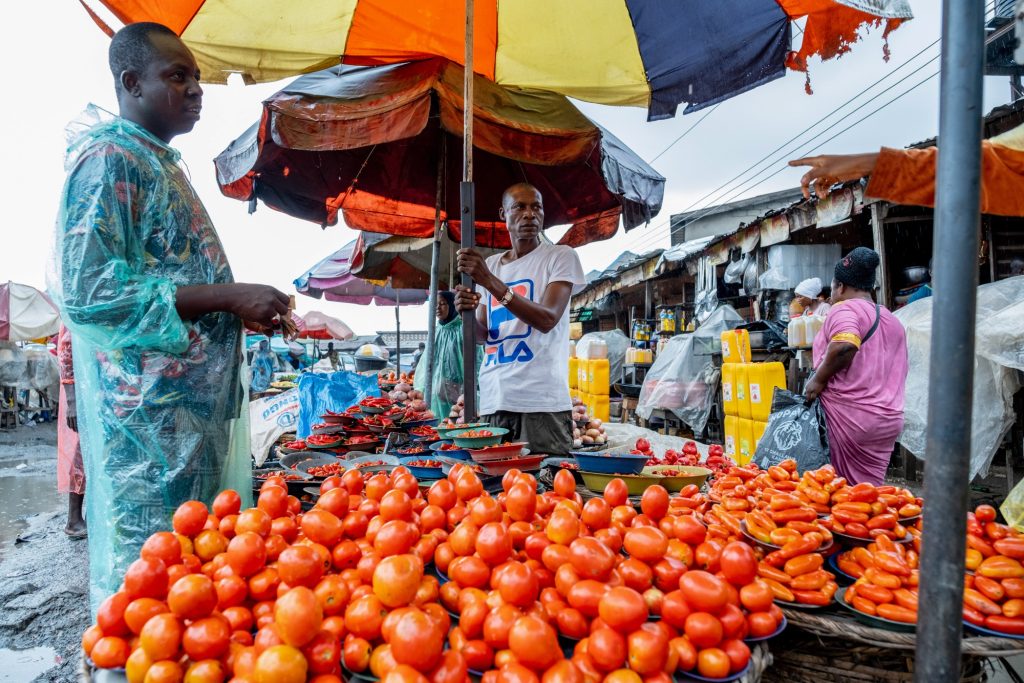In what is being described as one of its harshest food crises, Nigeria is witnessing a staggering increase in food inflation, soaring from 31.5% in October 2023 and reaching 40.1% by March 2024 according to a recent report by SBM Intelligence. The escalating inflation is largely fueled by the Naira’s plummeting value which went from ₦796 to over ₦1,513 against the dollar during the six months. This devaluation severely impacted the affordability of food, particularly as the country heavily relies on imports to meet its food demands. For instance, the price of a standard bag of rice soared from approximately ₦56,000 to ₦87,000.
Urban centers and rural communities alike are feeling the pinch, with families resorting to drastic measures such as communal food purchases and a return to subsistence farming. The escalating costs have forced a shift in dietary habits, with many unable to afford even basic meals, leading to increased malnutrition and social unrest, including food hoarding and rioting.
Compounding the crisis, Nigeria faces several unresolved issues that continue to drive food prices higher, including ongoing conflicts in agricultural regions, shrinking arable land, climate variability, and escalating energy costs. These challenges are exacerbated by ineffective governmental interventions that reached less than a quarter of the population, such as the release of 42,000 metric tons of grains and conditional cash transfers to about 15 million households.
The consequences of these soaring costs are profound. In Kano State, authorities seized ten warehouses over allegations of food hoarding, while major companies like Olam halted large-scale grain purchases to prevent further price increases. In urban areas, desperate measures such as looting food warehouses have occurred, highlighting the dire situation.
The food crisis is hitting Nigeria’s regions hard, with the price of even a basic dish like jollof rice skyrocketing. Markets in the North Central region, including Nyanya and Wuse II in Abuja, saw significant increases of 15.5% and 21.4% respectively from October 2023 to March 2024. But the Northeast region faces an even harsher reality, with Bauchi experiencing a staggering 42.6% price hike for jollof rice. The Southeast is not spared either, as prices in Onitsha and Awka markets jumped by over 22% in the same period. These shocking figures highlight the severe food insecurity gripping households across Nigeria.
In the Northwest, Kano market saw the cost of preparing jollof rice jump from ₦13,500 in October 2023 to a staggering ₦19,100 in March 2024. The South-South region was hit equally hard, with markets in Calabar Municipal, Bayside Mbakpa, and Port Harcourt reporting increases of over 23% in that same period. Major Southwest markets like Bodija, Dugbe, Trade Fair, and Balogun in Ibadan and Lagos saw similar hikes, with prices rising between 24.6% and 28%. These alarming figures underscore the devastating impact of food inflation on families nationwide.
While the government has attempted various interventions, including grain releases and cash transfers, these measures have fallen short. Less than a quarter of the population has benefited, leading to a staggering projection that an alarming 26.5 million Nigerians could face food insecurity in 2024.
This crisis not only highlights the immediate need for effective governmental action but also calls for a strategic overhaul of Nigeria’s agricultural policies to ensure food security. With the potential for further destabilisation, the situation demands urgent attention from both local and international stakeholders to prevent a full-scale humanitarian disaster.

